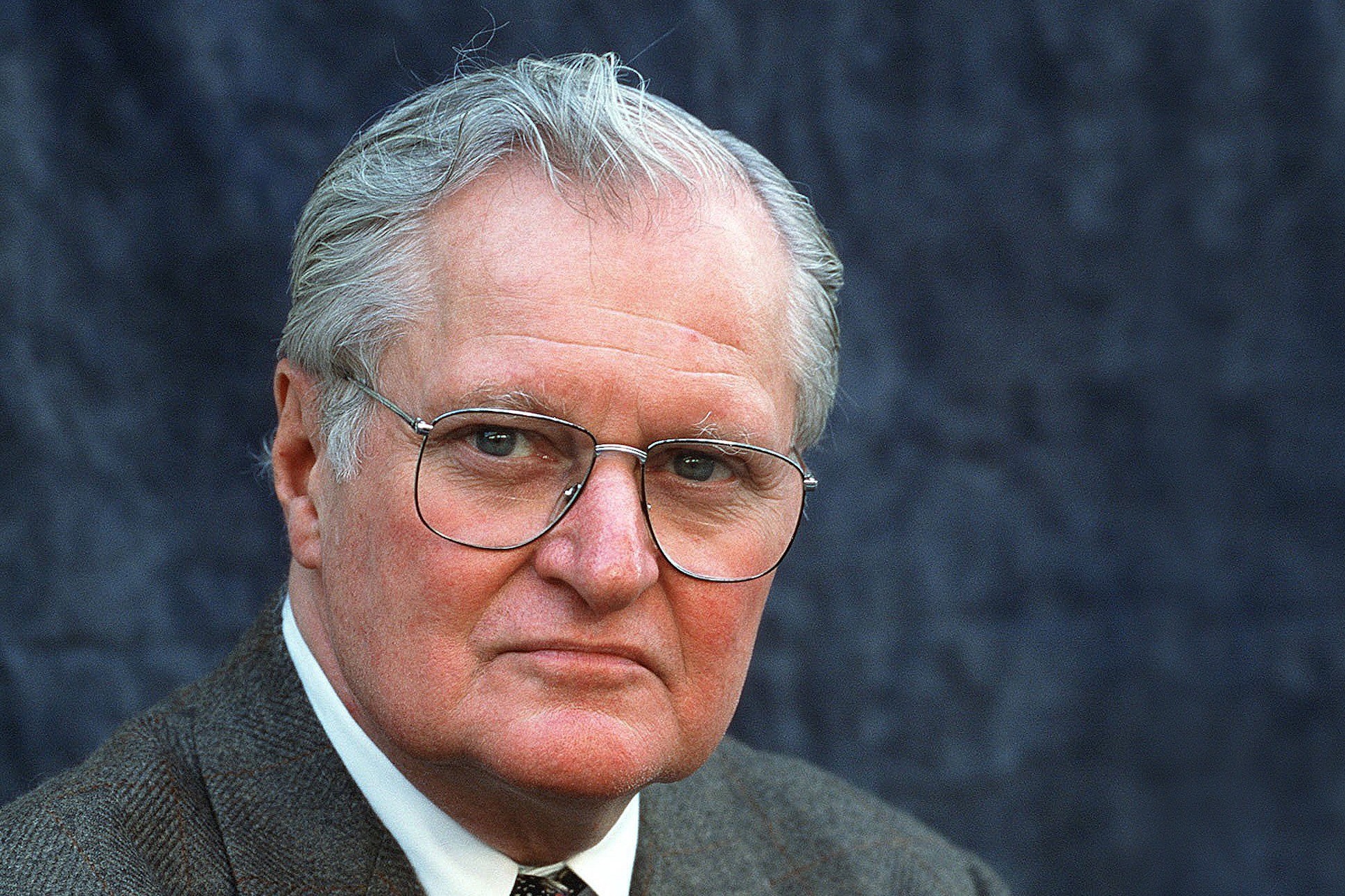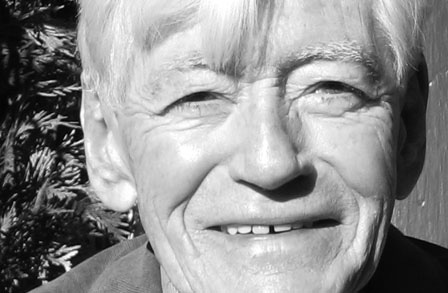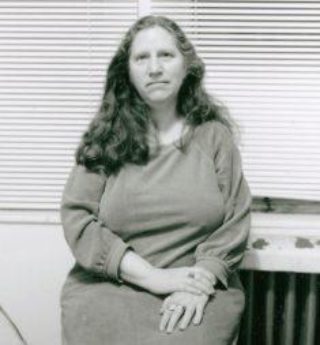PennSound Daily (original) (raw)
Fatemeh Shams on PennSound
We're kicking off this week by highlighting the work of Persian poet, translator, and scholar Fatemeh Shams, who is also an Assistant Professor of Near Eastern Languages and Civilizations at the University of Pennsylvania.
On March 2, 2017 Shams and translator Dick Davis took part in a lunchtime event at our own Kelly Writers House on Persian Literature in Translation, which is available on her author page in video and audio form. Later that day, the two stepped into the Wexler Studio for a bilingual reading, with Shams reading in Farsi and Davis sharing his translations in English. In total, the pair read ten poems including "Mashhad," "Three Years Later," "Never to Fall Asleep," "Ash and Mist," "In Search of a Homeland," "Home," and "Persecution."
These earlier recordings are joined by "Poetry Is for Breathing: A Reading Against Islamophobia" an event that took place at the Kelly Writers House on April 17, 2019 with sets by Shams, Aditya Bahl (poet, translator, and a current Johns Hopkins Ph.D. candidate), and Husnaa Hashim (2017-2018 Youth Poet Laureate of Philadelphia), with Orchid Tierney serving as host. Shams' poem, "When They Broke Down the Door," was also the subject of PoemTalk Podcast #119, with a panel that included Firoozeh Kashani-Sabet, Leonard Schwartz, and Mahyar Entezari joining host Al Filreis for the show. You can listen to all of the aforementioned recordings by clicking here.
PoemTalk #163: on Daphne Marlatt's Steveston, B.C.'
"The poem is in a sense — although not quite exactly — the title poem in a much-admired book published in 1974," Filreis notes in his Jacket2 blog post announcing the new episode, before giving us a little geographic context: "Steveston sits at the mouth of the South Arm of the Fraser River, near Vancouver, British Columbia." He also discusses the publication history of the poem and offers this interesting note regarding something relatively unprecedented in PoemTalk's history: "This time we're returning to the poetry of Daphne Marlatt just fifteen months after an episode about her poem 'Arriving' from Here and There of 1981. Those fifteen months not unwittingly bracket either side of the several collateral-effect crises caused by the 2020–21 pandemic and several new rounds of global awareness about impending climate change and its causes."
You can listen to this latest program and read more about the show here. PoemTalk is a joint production of PennSound and the Poetry Foundation, aided by the generous support of Nathan and Elizabeth Leight. You can browse the full PoemTalk archives, spanning more than a decade, by clicking here.
Mimi Gross and Red Grooms: FAT FEET
Today we're revisiting another classic recording from our PennSound Cinema page: FAT FEET, a groundbreaking short film made by the then-husband-and-wife team of Mimi Gross and Red Grooms.
In addition to the twenty-minute film, we've assembled remembrances from Gross and Yvonne Andersen (who served as photographer, artist and editor, as well as constructing sets and props). Here's Gross describing the film's origins and inspirations:
As I worked with Red at various intervals of time and projects, from 1960-1976, our collaborations became increasingly intense, and often lost the boundaries of ideas, aesthetics, and in the real time of making, craft and painting.
FAT FEET _(_1965-66) was directly inspired by the early animated films of Georges Melies, Emil Kohl, and the marvelous movie, The Invisible Moving Co, all of which we saw from the collections of Joseph Cornell (via Robert Whitman and Rudy Burckhardt). In 1962-3, together with Rudy Burckhardt, we made a 16mm film called Shoot the Moon. It is a direct homage to Georges Melies. There are some brief scenes with stop-action animation. Red and I made little cut outs, and Rudy showed us how he filmed the scene. A few years later, we experimented with animating life-sized props with live actors (long before "green screens").
When Yvonne Andersen and Dominic Falcone visited us in New York, we planned to make a film together the following summer where they lived near Boston. Red and I had just moved into lively "Little Italy" (1964), a neighborhood where daily fires, violence, and long term elderly residents lived near the Bowery, filled with bums, and (pre-immigration quota) Chinatown. I was busy drawing in the streets, and making objects based on street life, and Red was obsessively chasing fires, fire engines, street life, he was incorporating into his work.
The explosion of making FAT FEET resulted from our excitement living in the new neighborhood. Later, we made an ad, and called FAT FEET: "A day in the life of 'nervous city'!"
And here's Andersen describing the spirit of collaboration among friends that guided the project:
Each morning the four of us along with Dominic and our two children Paul, 7 and Jean, 5 went to the studio to build the sets and props. We painted cartoonish black and white buildings on the paper walls of the set, painted and and constructed 3/4 size flat automobiles with movable wheels from heavy building cardboard. Red built a dog which could be animated to walk in front of a live person.
Red was creating a cartoonish atmosphere depicting the types of city people who might be seen walking the street of a big city. For this reason the people wore giant shoes to connect them to the sidewalks. Those shoes were heavy! A normal shoe was screwed into a giant shoe manufactured by Red.
In the beginning this was supposed to be a four person project, but people heard about it. Each night people came to be in the winter crowd scenes. Some were friends of Red and Mimi, some were my animation students and neighbors. We got old coats from Morgan Memorial and there was a large make up table. People could come in, put on a coat, do their own make up, and become who they wanted to be for the evening.
From a personal perspective, it was truly wonderful to finally get to see this charming film when we first announced it a decade ago this month, since I had first heard about (along with its creators) under strange circumstances a very long time ago. My grandfather spent many years working as a printer for the Curtis Publishing Company, and one of the few concrete mementoes from his time there (aside from the missing tip of one finger) was a copy of the February 8, 1969 Saturday Evening Post (shown at right) — the magazine's final weekly edition after seventy-two years of publication, which featured Red Grooms on the cover and a lavish article on Grooms and Gross inside. Their technicolor art and lifestyle was immediately appealing to me, connecting with my kindergartener logic (as did the work of Keith Haring, who I likely discovered around the same time), and I found my first favorite artists.
Jumping forward several decades, I should add that I'm still very fond of the work that Grooms and Gross produced in the 1960s, and, for that matter, I still have that issue of The Saturday Evening Post, stored next to the 2004 Rizzoli retrospective of their art. Seeing FAT FEET for the first time, that childlike awe is certainly rekindled by its Chaplin-esque grace, its engaging bustle, the warmth of its handmade aesthetic and its dizzying juxtapositions (of black-and-white and color, two- and three-dimensional forms, live actors and stop-motion animation). Check out the film on our FAT FEET homepage and perhaps you'll have the same magical experience.
In Memoriam: Jack Hirschman (1933–2021)
Sad news out of the San Francisco Bay Area to start off this new week: Jack Hirschman, the city's one-time poet laureate and a major force in its poetics scene for decades, has passed away at the age of eighty-seven.
Tributes are already pouring in, including one from the legendary City Lights Books — just a stone's throw away from Caffe Triesete, above which Hirschman resided for many years — who remembered, "Jack made regular visits to our store and publishing office before the pandemic, brightening our day with a joke or a story. His presence in North Beach will be missed so much. He was steadily reading poetry up until today at various virtual events. We love you, Jack."
While we did not previously have a PennSound author page for Hirschman, we've created one now particularly because our holdings from the poet are somewhat diffusely scattered throughout our archives. By far the recording you'll want to check out is Hirschman's inaugural reading as San Francisco's poet laureate, which comes to us through the graces of the Cloud House Poetry Archives. Running more than an hour, this film is a fine tribute to Hirschman's long affiliation with the city and its literary life.
We also have Henry Hills' 1981 film, Kino Da!, which features Hirschman in the lead role. Here's Hills' own description of that project: "KINO DA! (ah, key, key) KINO DA!/The Dead die die dada low king quanto zhong/MOVE! (ur, ur)/Grey todays it-a clear to the quick ear, quicker z'heels/The Poe (pay, po, pee, pick-pick), nuf of "D" yet/Call Vertov/(beep, beep)/Eisenstein even/& viterulably cheeness of a ram innerwear/(airs; when)/Time, Time, Money/d-d-d/ junk rock did travel & falls/(spring)/Fall/Spring is the simplest inflationary dime.///Be in everything Joy, in experimental & proletarian & wwea air of airs/at this school of poetry-painting/CUT! "To know/toe/no! no! MONTAGE (nadazha), in any instant (instant) of the writing of Stein & the facts of that (tle) kind./FEEL (the steak)/yes, ache, in trends & whatevers./Mmmm-pah-ah, Cops, man, in case (nnn), man (nnn)./(KO) be-a mayu po pony; (KO) be-a what?) o-long kind.//GO! (be what) OM, prose, Pentacost; be what this there the (pause) & (serious pause) the neb with a gram of ire illia-it's still justs Jah.//Viparko r-rrr re ad adici, yes!/YES!//ssssssssssane! /mmmm vidda pot re-a-uschious of a ship. Viparko Roma Schoma Schlav keybo z'Krushchev. (wink)"
Finally, Hirschman makes a brief appearance in the recently-announced Bob Kaufman, Poet: the Life and Times of an African-American Man (1992), and we've also included a link to the EPC, where you can read the poet's 2012 translation of Yitzhak Katzenelson's 1945 anthology, Dos Lid Funem Oysgehargen Yidishn Folk / The Song of the Massacred Jewish People — the first English-language version of this crucial text.
We send our deepest condolences to Hirschman's family, friends, and fans, in the Bay Area and worldwide. To start listening to the recordings found on PennSound's Jack Hirschman author page, just click here.
Lee Harwood on PennSound
We close out this week by revisiting our PennSound author page for British poet and translator Lee Harwood, whose work crossed the Atlantic to find affinities with the poets of the New York School.
When Harwood passed away in the summer of 2015, he was remembered by The Argus for his dedication to both poetry and politics, serving "as a union official and as a member of the Labour Party during its most radical years." John Harvey offered up a recollection of his long friendship with Harwood, including the memory of an event in the last year of the poet's life when they both read their work with jazz accompaniment, conjuring up memories of Harwood's formative experiences in New York during the 1960s. Finally, Enitharmon Press, publishers of Harwood's most recent collection, The Orchid Boat hailed him as "not only a highly gifted and skilled poet, but a man of immense kindness and thoughtfulness."
The heart of our Lee Harwood author page is his career-spanning Rockdrill album The Chart Table: Poems 1965-2002, which showcases twenty titles from across his career, including "As Your Eyes Are Blue," "Linen," "Animal Days," "Summer Solstice," "African Violets" and "Gorgeous." Another highlight is "Chanson Tzara," a twenty-seven minute audio composition that serves as an ambitious and fully-dimensional tribute to both Tzara and the chaotic spirit of Dada made contemporary, starting with a hectic sound collage of found samples, ring modulated radio noise, music, and text-to-speech voice generation, which eventually gives way to a touching and elegiac voiceover by Harwood that weaves together memories, translations, and the young poet's conversation with Tzara. Finally, we have Harwood's half hour set from the Shearsman Reading Series at London's Swedenborg Hall in June 2008.You can listen to all of these recordings by clicking here.
Barbara Henning reads from 'Digigram,' 2021
Today we're highlighting a recent video of poet Barbara Henning reading from her 2020 United Artists collection, Digigram. We're very glad to be able to present this recording, which was made and originally hosted in July 2021 by Don Yorty. Here's how he set up the video:
Barbara Henning’s new book of poems, Digigram, chronicles a dreary year, the abominable 2016, yet it is full of insights by an aware observer who takes the time to look. These poems are so good, they make the ordinary day to day extraordinary.
In the Vimeo below, at her home across from Prospect Park, Barbara settled down to read from Digigram. We were both doing other things and running around, but I’m glad we got it done because these poems offer optimism to the reader and listener; in the middle of creation is the will to go on. Enjoy.
Maureen Owen, who went on a rollicking poetry tour with Henning in the spring of 2019, hailed Digigram for "follow[ing] the path of Barbara Henning's daily orbit into the roar and stammer of the universe just outside her apartment door—the politics of the hour, the wandering populace, the upheavals and intervals of all the treasured ordinary." To her mind, Henning is "an engaged participant and insightful commentator," that "defines her times with riveting staccato observation and claims her place as part of that manifold citizenry." If those testimonials don't have you raring to listen to these poems, then I don't know what will! Click here to check out this new video, and all of the other remarkable recordings you'll find on PennSound's Barbara Henning author page.
Robin Blaser: 1987 Charles Olson Lectures Now Segmented
PennSound summer staffer Alex Moon has been editing up a storm recently, yielding a number of fantastic newly segmented recordings from our archives. Today we're taking a look at Robin Blaser's three Charles Olson Memorial Lecture Series events from SUNY-Buffalo. Totalling four hours in length, the trio of talks took place between March 23–27, 1987.
Blaser's first lecture starts with introductory remarks by Robert Creeley before Blaser makes his own preliminary comments. He starts in earnest discussing "poetry and positivisms," reading Olson's poetry, and the work of Lucretius before switching his topic to "silence, the word, and the sacred," which is cut off by the tape being flipped. In the first lecture's second half Blaser starts with god and human nature and the question of violence before turning to "the fragility of goodness" and the search for the poetic before concluding with discussion of Hölderlin and Broch.
The second lecture starts off with "the 'no thing'" before its first half continues with "relations to words" and "moving forward." Blaser reflects upon the lecture up to that point to reach the midpoint. He begins again by talking about his own past and cosmology, along with the work of Robert Duncan, Ernst Kantorowicz, and Hannah Arendt, concluding with "the theological metaphysical past.
Blaser's final lecture starts with a reading from "The Death of Virgil," before moving on to examples of positivisms and discussion of Mallarmé (including "Mallarmé's problem") before wondering "what shall we do now?" The lecture's second half starts with the topic of Olson and myth, inlcuding passages from the poet and their comparison to Talmudic texts. He then shifts gears to talk about Spangler on god and music, along with Bach's Passacaglia, before bringing the discussion "from Bach to Olson" to close.
Blaser's Olson Lectures visit to Buffalo concluded with a poetry reading on March 29th, which has also been segmented. Running nearly an hour, his set includes the poems "Further," "The Pause," "Romance," "Gathering," "Robert Graves: In Memoriam," and "To Whom It May Concern." To listen to any of the aforementioned recordings, click here.
Lisa Samuels Reads 'Tender Girl'
We're wrapping up this week with a recording from Lisa Samuels, a multi-modal author and artist living and working in Aotearoa New Zealand. She recently sent along a recording, made by Tim Page between 2019–2020 at the Waipapa Taumata Rau Sound Studios, of her reading her novel Tender Girl (Dusie, 2015) in its entirety.
Tender Girl, which you can read here, revisits the Comte de Lautreamont's Les Chants de Maldoror (1868), wherein "the hero copulates with a female shark in the frenzied sea of a shipwreck." Samuels' novel is the story of that "visceral Little Mermaid," who "comes out from ocean and crosses the land of the father, finding speech, sex, law, violence, and art."
Tender Girl has been segmented into a total of sixteen MP3 files, corresponding to its introduction and prelude, fourteen chapters, and post-lude, making it even easier to listen to on your commute or while on a jog. It's one of several recordings you'll find on PennSound's author page for Samuels, including a Segue Series reading at Zinc Bar from 2015, a Heatstrings recording from the 2015 Modernist Studies Association conference, two appearances on LA Lit, and the two-CD set Tomorrowland (Deep Surface Productions, 2012), along with external links to a number of projects. Click here to start listening.
John Ashbery: Confrontation Interview Now Segmented
 We're revisiting our PennSound author page for John Ashbery today, thanks to a classic recording that's recently been broken up into segmented MP3 files by according to theme.
We're revisiting our PennSound author page for John Ashbery today, thanks to a classic recording that's recently been broken up into segmented MP3 files by according to theme.
Originally taking place on May 27, 1973, this seventy-minute interview with Ashbery was conducted by Brett Lauer, which eventually saw print in the fall 1974 issue of Confrontation. Split across three sides of two C60 cassettes, this wide ranging conversation starts off with a few topics that seem like natural points of entry for the notoriously challenging poet: "Ashbery's Biography," "How Does One Read Ashbery's Poetry?," "An Ideal Reader," and "Opaqueness." From there it moves into questions of translation and the essential nature of American poetry, along with the impact of Ashbery's Guggenheim Fellowship and his general influences.
As Lauer flips the tape he starts getting into close readings of some of the poet's best-known work, including "The Tennis Court Oath," "Europe," "Some Trees," and Three Poems, as well as discussing the influence of his fellow New York School compatriots, the influence of his work as an art critic, and the shadow cast by Auden. The interview concludes in an ekphrastic mode with more talk of the links between the visual arts and poetry, as well as how music shapes Ashbery's work.
This newly segmented interview is but one of more than a thousand files you'll find on PennSound's Ashbery author page, which starts with a 1951 student presentation of his play Everyman in Cambridge and ends with home recordings made not long before his death in 2017. Click here to start listening to the aforementioned interview, and here to browse our Ashbery author page from the top.
Jerome Rothenberg: 2013 DIA: Chelsea Reading Now Segmented
PennSound is glad to have summer staffer Alex Moon doing all sorts of great work for us over the break, and have already highlighted several projects they've worked on recently. Today we're taking a look at another new addition to the archives: segmented audio of Jerome Rothenberg's 2013 appearance as part of the Readings in Contemporary Poetry series at Dia Art Foundation, New York:Chelsea.
Rothenberg's reading, which took place on April 8th of that year, is typical of the sort of career-spanning performance that he offers up to rapt audiences (and which I've had the pleasure of seeing in person on several occasions) late in his writing career. Running thirty-five minutes in length it includes twenty-one tracks in total, taking extended dips into several late book projects, including The Notebooks, The Variations, and Divigations, with "A Cruel Nirvana," "From the Book of Palaces," "A Letter to Paul Celan in Memory," and "The 13th Horse Song of Frank Mitchell (White)" among some of the individual titles read.
Of course, PennSound's Jerome Rothenberg author page is a thriving testament to the poet, translator, editor, and anthologist's long and influential career. There's a comprehensive survey of his own diverse poetic modes, spread across numerous recordings, from album releases via S Press and Optic Nerve's Rockdrill series to myriad readings and even some of his musical collaborations. There are a number of recordings related to his editorial and translation projects, including launch readings celebrating several different volumes in the Poems for the Millennium series and milestone events for Technicians of the Sacred (both its 40th and 50th anniversaries). There are lectures, class recordings, and interviews with Rothenberg, as well as commentaries on his own work, including several PoemTalk episodes. With nearly 300 MP3s alone — counting individual tracks and complete recordings — not to mention videos, it's a fittingly encyclopedic tribute to Rothenberg's influence, as well as a useful resource for all sorts of classroom settings. Of course, our listeners will also enjoy Rothenberg's ongoing Jacket2 commentary series, "Poems and Poetics," which we've been honored to host for the past decade. You can listen to this newly segmented recording by clicking here.
Happy Birthday, Diane di Prima
August 6th would have been the 87th birthday of Beat legend Diane di Prima, and is her first birthday since her passing last October. While we didn't have a PennSound author page for di Prima then, we are very glad to have one now, and while its contents are modest, they are nonetheless well worth your time.
First and foremost we have an hour-long 1992 interview with di Prima conducted in San Francisco with Billy Klüver. Writing at Topos, Julie Martin provides some background for the recording, noting that it came out of a collaborative book project focusing on New York City's postwar artistic communities between 1945–1965. She continues:
During a trip to San Francisco in 1992, Billy reached out to Diane de Prima and requested an interview. He had studied at the University of California, Berkeley, from 1954 to 1958, before settling permanently in New Jersey just outside New York City, and had followed art, film and publishing activities on both coasts. He was familiar with di Prima’s work, and had in his archive numerous issues of The Floating Bear, the newsletter/magazine that she co-published from 1961 to 1969.
When I read of di Prima’s death on October 25th, I remembered the interview, and I was very pleased to accept the invitation of Jacob Kirkegaard, to prepare the 30-year-old tape of the interview and release it on his group’s artists website TOPOS.
di Prima's participation in the 1973 National Poetry Festival is extensively documented on our homepage for that event, though there are sadly no recordings of events she participated in available to us at this time. Finally we have audio of Pierre Joris reading di Prima's "Rant" at a Poems for the Milennium launch event, as well as Ammiel Alcalay and Ana Bozičević discussing the poet for Cross Cultural Poetics.
With any luck, we hope to be able to expand our holdings in the near future. In the meantime, you can click here to listen to all of the aforementioned recordings on PennSound's Diane di Prima author page.
In Memoriam: Janice Mirikitani (1941–2021)
Sadly, the week continues with more tragic news from the world of poetry. Janice Mirikitani, a groundbreaking Asian American poet, former San Francisco poet laureate, and co-founder of Glide Memorial Church (whose mission was to serve the city's homeless and poverty-stricken residents), died suddenly on July 29th at the age of 80.
While we do not have the privilege of hosting recordings of Mirikitani at PennSound, we wanted to mark the passing of such an important figure in contemporary US poetry. To do so, we gladly point our listeners to Timothy Yu's 2015 Jacket2 essay, "Engagement, Race, and Public Poetry in America," one of the finest pieces we've published in the journal. Indeed, in our editorial board's note on publishing during the Covid-19 pandemic from last April we singled out Yu's essay in an effort to "support and amplify resistant and incisive writing by Asian American poets, scholars, and critics in our institutions and communities" in the face of rising hate crimes against the Asian community, noting that his essay "explores the significance of Janice Mirikitani, Ishle Park, and Cathy Park Hong." Click here to read this poignant exploration of the evolution of Asian American poetry through a turbulent 20th century.
In Memoriam: Roberto Calasso (1941–2021)
We start this week off with the sad news that Italian author, translator, and publisher Roberto Calasso — hailed in his New York Times obituary for his "wide-ranging works [that] explored the evolution and mysteries of human consciousness, from the earliest myths and rituals to modern civilization" — passed away on July 28th at the age of 80.
It was Leonard Schwartz, host of the sorely-missed radio show Cross Cultural Poetics that brought this news to our attention, and therefore I thought it appropriate to ask him to share his thoughts on Calasso, who appeared twice as a guest on his show. Here is his reply, which came back in a flash:
The two conversations with Roberto Calasso were for me among the program's most memorable. I am still astonished by his discussion of Pound's poetics, and by the recognition of how deeply this consummate Italian intellectual was influenced by the notion from The Spirit of Romance that "all ages are contemporaneous". Whether writing about Baudelaire's influence on the painters, revivifying Greek and Roman myth, or pondering the unknowables of the Vedas, Calasso was illuminating. In Ardor he wrote "If the Vedic people had been asked why they did not build cities, they could have replied: we did not seek power, but rapture." He also wrote in Ardor: "the infinite is presented as a gradual, imperceptible expansion of the dominion of light." With his passing, a certain responsibility for the continued expansion of this light and this rapture shifts to us.
While Leonard mentions two conversations, Calasso actually appears on three episode of Cross Cultural Poetics. First there's program #265, "Baudelaire, Helen, and The Fugitive Gods," from 2013, where Calasso reads from and discusses his books, La Folie Baudelaire and The Marriage of Cadmus and Harmony in each of the show's two segments. Calasso returned in 2015 at the time of Ardor's publication, and he discusses the book in program #317, "Ardor," while he reads from the book in program #318, "The Italian Friend." The late author also factored into 2013's program #283, "From the Italian," in which his own translator, Tim Parks, reads from Ardor for the audience.
We send our condolences to Calasso's family, friends, and fans worldwide and express our gratitude to Leonard Schwartz, for notifying us of the author's passing, for his lovely tribute, and for having the foresight to have Calasso as a guest on his wonderful show all those years ago.








